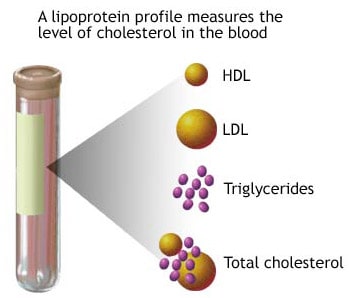More Anti Muscle Media Bias!
As most know who have been weight lifting for more then a few years, there is a general anti muscle bias that exists in the general (read fat and lazy) population and the media. There is even something of an anti muscle bias in science and medicine I find, even when study after study shows having more muscle then the average person offers many advantages from a health and performance perspective.
Modern medical science has finally caught on to the reality that muscle tissue is much more then just something that attaches to your skeleton to help you move your body or carry your groceries. It’s an essential part of your health, intimately connected to immunity as well as a long list of other benefits. A perfect example of that was found in a recent report called “Men with big muscles cut cancer risk by 40 per cent” which covered an interesting study. From the media report:
“In recent years, experts have recommended a healthy diet and lifestyle – including regular aerobic exercise such as jogging or cycling to reduce the risks of the disease. But the latest study, published in the journal Cancer Epidemiology, Biomarkers and Prevention, suggests it may be just as important to build up muscle strength. A team of experts, led by scientists from Sweden’s Karolinska Institute, tracked the lifestyles of 8,677 men aged between 20 and 82 for more than two decades.”
So far so good, and as the reader can see, a large study that ran a long time. The study found those men who regularly worked out showed significantly lower rates of cancer, and most interesting was the effect was constant “Even among volunteers who had excess tummy fat or a high body mass index, regular weight training seemed to have a protective effect.”
However, and as one should expect, these researchers stressed keeping a healthy weight was still an essential part of avoiding various diseases. The researchers recommend regular weight training in light of these findings. But then, that odd anti muscle bias seems to creep in. Ergo, a spokesman for Cancer Research UK Health information officer Jessica Harris is quoted as saying “There’s no need to become a body builder. Just 30 minutes of moderate exercise five times a week that leaves you warm and slightly out of breath can have a positive effect.”
There’s so many things wrong with the above, it’s hard to know where to start, but here’s some thoughts:
• There’s a looooooooooong way, time, and effort, between being a “bodybuilderæ and “30 minutes of moderate exercise five times a week that leaves you warm and slightly out of breath.”
• As anyone who has spent any time in a gym knows (and we all know that eliminates most scientists but I digress!) building muscle is not easy, so “30 minutes of moderate exercise five times a week that leaves you warm and slightly out of breath”is not going to do jack you-know-what for actually increasing muscle mass. In fact, it may not even prevent the loss of muscle mass that happens with age, a condition known as sarcopenia. People interested in learning more about sarcopenia, can read my article on the topic here: Sarcopenia, the undiagnosed epidemic
• I’m sure the medical/scientific community does not want to scare people away from resistance exercise (e.g., weight training) by actually admitting they will have to work hard in the gym to actually see any effects on muscle mass and strength, but giving people faulty advice that will not lead to the results they want does not seem like a productive way to accomplish anything other then to confuse people.
• I know hard work is a four letter word these days, but there’s no free lunch, there’s no Santa, no Easter Bunny, and getting the known health benefits of muscle mass (not to mention the aesthetic benefits!) does in fact take dedication, a bit of thought and planning, and – sorry to say- hard work with loads/weights heavy enough to kick your a$$. Lifting a beer to my mouth a hundred times will leave some “warm and slightly out of breath” but it aint going to build any muscles!
See you in the gym!
Will Brink is the owner of the Brinkzone Blog. Will has over 30 years experience as a respected author, columnist and consultant, to the supplement, fitness, bodybuilding, and weight loss industry and has been extensively published. Will graduated from Harvard University with a concentration in the natural sciences, and is a consultant to major supplement, dairy, and pharmaceutical companies.
His often ground breaking articles can be found in publications such as Lets Live, Muscle Media 2000, MuscleMag International, The Life Extension Magazine, Muscle n Fitness, Inside Karate, Exercise For Men Only, Body International, Power, Oxygen, Penthouse, Women’s World and The Townsend Letter For Doctors.
He’s also been published in peer reviewed journals.
Will is the author of the popular e-books, both accompanied by private members forum access , Bodybuilding Revealed & Fat Loss Revealed.
You can also buy Will’s other books on Amazon, Apple iBook, and Barnes and Noble.







The anti muscle bias is fascinating in the variety of places that it rears its head. I read that article “Men with big muscles….” recently as well (maybe from a link you had in BBR, Will?) and shook my head in amazement when it made that comment “There’s no need to become a body builder. Just 30 minutes of moderate exercise five times a week that leaves you warm and slightly out of breath can have a positive effect.” Gees, a walk up a flight of stairs a few times is going to do bugger all for muscle development!
The anti muscle brigade comes out even stronger for females I think. If I hear a friend say once more “but I don’t want to get big muscles…”, I think I will throw something, but my general response these days is’ “Well no chance of that happening if you stick to the 2kg dumbbells (or walking on the treadmill or whatever form of exercise they are doing, if any)”!
Yes, for women, the anti muscle bias is much stronger.
In my opinion, muscle is a good sign of the overall health of an individual. Man or women. I don’t been bodybuilder size muscle. I just mean muscle not covered by a lot of fat.
I don’t think you’ll get that with any kind of moderate exercise for 30 minutes 5 times per week!!!!
I’ve had the same PCP since he delivered me at birth. Therefore, I never anticipated an event causing me to look elsewhere for another PCP. But sure enough, I found that motivation in anti-muscle bias this year at the age of 30.
I’ve been lifting consistently for over a year now, and off and on since my teenage years. I’m approximately 5′ 7″, 190 lbs, 14.5% BF. What’s interesting is that my weight hasn’t changed much since I started lifting consistently, but I know my body composition (and appearance, energy, strength, etc) has! I just wish I measured by BF% prior to starting to quantify that claim.
Without solicitation (meaning I attended an appointment for a simple allergy shot), I have been pulled aside twice now to address my “tumor,” i.e., my BMI. When probing further about what exactly is the cause for concern, his only defense was a high BMI. Pushing further for concern in the absence of other alarms (high cholesterol/triglycerides, high BP, high BF%, etc), inquiring aloud why BMI would be relied on so heavily when only height and weight are considered (rather than, say, body composition), and admitting my “addiction” to bodybuilding/weight training and accompanying weight gain goals, doc sent me away with the instructions to “just stop eating so damn much” and to “munch on celery” if I feel the urge to indulge outside the “three squares” everyone should of course be eating everyday.
I guess every movement has to be a minority before the existing evidence is appreciated fully by the mainstream public. Keep up the great work Dr. Brink!
Sultan, your experience is a common one, sad to say. The BMI does have some clinical use for docs dealing with the general population, but that’s about it. It’s sad they often can’t change gears and realize that bodycomp is what truly matters and if they see a person who is obviously not fat, but muscular, be smart enough to realize the BMI simply does not apply, especially if lacking other risk factors you listed above. BTW, according to the BMI I am an obese man…
PS, I am not a doctor nor do I play one on TV 🙂